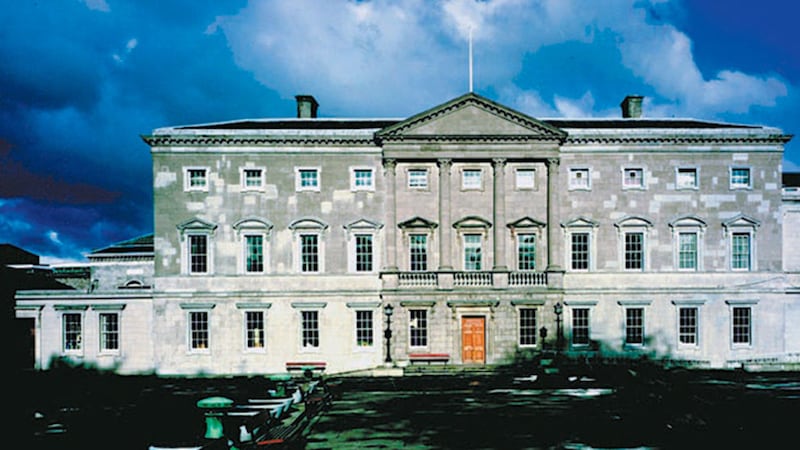OH good, we are going to have an all-Ireland conversation. Enda Kenny announced it in the Dáil this week, so it must be a good idea. No, I do not know what an all-Ireland conversation is (although I have had conversations about this evening's all-Ireland) but apparently it has to do with the UK's decision to leave the European Union.
The Taoiseach says the conversation will involve political parties, business people, and members of civic society. (If civic society includes 6.5 million people on the island, how will he select those to take part? Why single out business people? Maybe he will choose nurses, teachers, the unemployed, the homeless or those in poverty?)
This idea, of course, is different (well, not very) from Mr Kenny's proposal for an all-island forum, which he announced just after the Brexit referendum. He abandoned that notion when Arlene Foster rejected it. She has rejected this idea too, which means that if it goes ahead, it will not be an all-Ireland conversation, just a quiet chat among Catholics. (Don't speak too loudly. You'll waken the unionists.)
So how useful is Mr Kenny's idea? What is there to say in such a conversation and, without unionists, is there any point in it?
The proposal is of limited use, but everyone taking part will know that. For the political parties in the Dáil, it will be a shop window for the forthcoming election and for northern nationalists, it will be a face-saving exercise for accepting the legitimacy of partition. (If they had not agreed to remove Articles 2 and 3 of the Irish constitution, their anti-Brexit case might now carry more weight.)
The details of Britain's negotiations over Brexit are a matter for Westminster and, with due respect, they are none of the Taoiseach's business. They should be, but the post-Brexit border will be negotiated between Britain and the EU. Certainly the Irish state will have a view on the discussion, but within the EU, its voice will be drowned out by France and Germany, just as it was during the bank bailout.
So what is there to say in this non-unionist conversation? The first sentence might be "How did we get into this mess?" The answer lies in recognising that it is largely a self-created problem, brought about by nationalists' surrendering Irish sovereignty in one referendum (EU entry, 1972) and conceding the legitimacy of union with Britain in another (Good Friday Agreement, 1998).
To abandon sovereignty in one referendum might be seen as unfortunate. To abandon it in two, looks like carelessness.
The self-inflicted nature of the current problem is emphasised by the fact that in two other referenda (2001 and 2008), the Irish people voted against the further integration of the EU into a single state. However, on both occasions, the Dublin government held the referenda a second time to obtain the "right" result, thereby creating the mess in which we now find ourselves.
(Now some northern nationalists want the Brexit referendum held again to obtain the "right" result. Democracy, how are you?)
None of these points will surface during the conversation, which will essentially reflect nationalists' indignation at Britain's refusal to allow all-Ireland political union with 27 other states.
Nationalists do not just want the free movement of goods and people across Europe (a perfectly reasonable idea). They want a single EU state, with its own flag, anthem and currency - and the accursed British oppressors will not allow them to do that. (Maybe we should organise a 2016 Rising against the British, to give control of Ireland to Berlin?)
Without the unionists, of course, the conversation will be little more than pro-EU flag waving. (Unionists, without knowing it, have become the last remaining Irish nationalists. Maybe the rebellious spirit of Presbyterianism is not dead after all.)
Although the post-Brexit border problem is largely a creation of the Irish political class, it still requires tackling. Nationalism's solution appears to rest entirely on allowing the north a new type of relationship with the EU. It has not suggested a new type of British relationship with the EU (which is much more likely) or even (heaven forbid) a new type of relationship between Ireland and the EU.
As long as nationalists see membership of a single European state as their holy grail, the forthcoming all-Ireland conversation will be remarkably futile. So, who among them will argue for re-inventing the EU as a free trade area, rather than a single right-wing state? Now, there is something worthy of an all-Ireland conversation - and even the unionists could join in.








